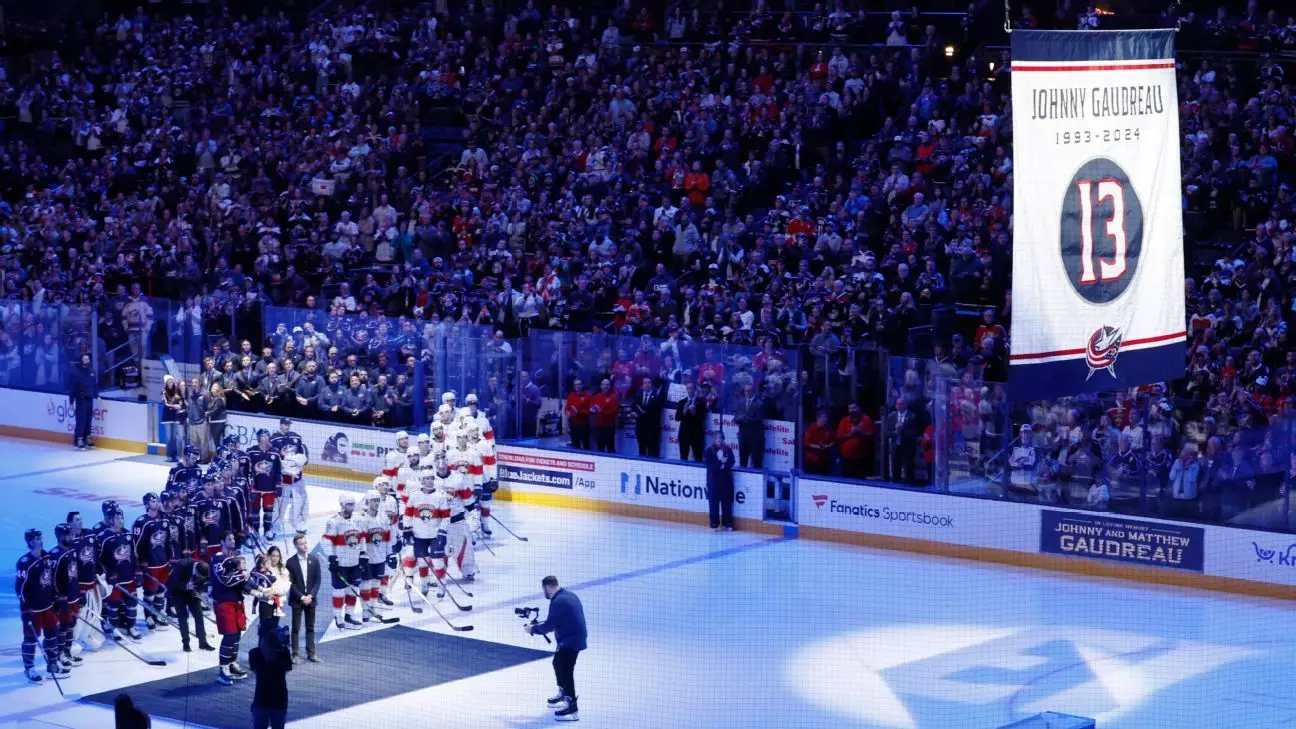In a standout collision that shocked many in the sports community, the tragic deaths of NHL player Johnny Gaudreau and his brother Matthew have cast a long shadow over discussions regarding responsibility and culpability in road incidents. On the night of August 29, 2024, the brothers, celebrated local athletes, were struck by an allegedly intoxicated driver, Sean Higgins. The incident occurred mere hours before their sister’s wedding, a poignant detail that enhances the emotional weight of the case. As the legal proceedings unfold, the courtroom has become a stage for heated debates about responsibility, with many grappling over the actions and decisions that led to this heartbreaking incident.
The Legal Debate: A Matter of Blame?
The contentious discussions in court revolved around the juxtaposition of culpability vs. grief. With the Gaudreau brothers found to have elevated blood alcohol content levels, arguments were presented to insinuate that their drinking may have played a role in the fatal outcome. The defense contended that this could warrant consideration of contributory negligence. However, Assistant Prosecutor Michael Mestern pushed back, arguing that “to say that their BACs may have contributed to the cause of death is a reach to say the least.” The testimonies of four witnesses who claimed to have seen the brothers cycling safely and legally raised crucial questions about the context of the collision and the broader implications surrounding negligence.
The Broader Implications of Drunk Driving
Drunk driving remains one of the most contentious issues on road safety, and this case underscores the need for persistent conversations surrounding the matter. With Higgins reportedly speeding and exhibiting aggressive behavior, the case illustrates a perfect storm of negligence and reckless driving. His alleged condition at the time of the accident, paired with variable personal circumstances—like his reported emotional distress from a troubling phone call—paints a grim picture of how emotional turmoil can imperil public safety. The prosecution’s view that Higgins acted with reckless indifference contrasts the defense’s attempts to deflect some blame onto the victims, creating a frustrating intersection of law and morality.
A Picture of Grief and Loss
The personal toll of this tragedy extends far beyond the courtroom. Johnny Gaudreau, affectionately known as “Johnny Hockey,” had an impressive career ahead of him with the Columbus Blue Jackets, while Matthew was committed to nurturing young talent as a high school coach. Both had begun families of their own, and the loss ripples through their community. Their wives now face the burden of raising children without their beloved husbands, and their impending wedding celebrations have been marred by unbearable heartbreak. These realities contribute to the emotional landscape of the family, often overshadowed by legal considerations.
The Inevitability of Consequences
As the case progresses, it’s crucial to consider the larger picture of accountability and the consequences of reckless behavior. Higgins faces a potential maximum prison sentence of 70 years—a chilling reminder of the penalties associated with such grave actions. Regardless of the legal outcomes, the scars of this tragedy will likely remain, not only for the immediate family involved but for the broader community grappling with the implications of impaired driving. The debate around blame, liquor consumption, and safe driving doesn’t only serve a legal purpose; it incites essential conversations about personal responsibility and the duty we owe not just to ourselves, but to others on the road.
The societal impacts of such a tragic event demand reflection and discourse regarding preventive measures, augmented by emotional narratives that involve the deeply personal losses experienced by families like the Gaudreaus. Legislation must consider the wider implications of driving under the influence and seek to steer collective consciousness toward a safer future where such tragedies are less frequent. The overlap of athletics, family, and loss turns a simple legal negation of fault into a multifaceted dialogue about humanity, choices, and their implications, urging us all to reconsider our actions before climbing behind the wheel.

